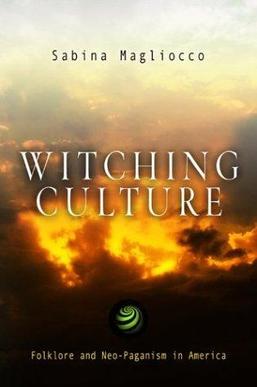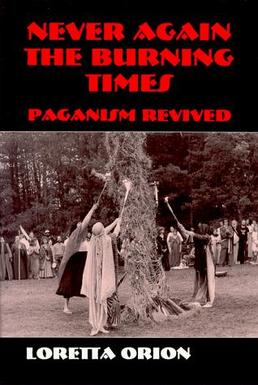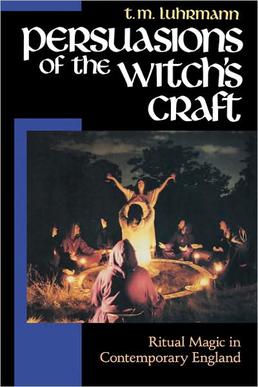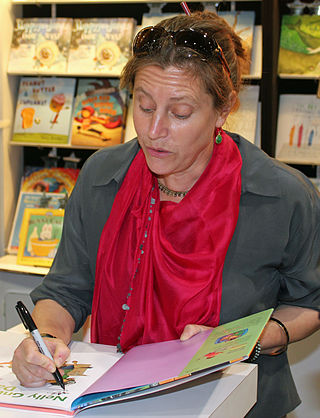Related Research Articles
Medical anthropology studies "human health and disease, health care systems, and biocultural adaptation". It views humans from multidimensional and ecological perspectives. It is one of the most highly developed areas of anthropology and applied anthropology, and is a subfield of social and cultural anthropology that examines the ways in which culture and society are organized around or influenced by issues of health, health care and related issues.
Bicameral mentality is a hypothesis introduced by Julian Jaynes who argued human ancestors as late as the ancient Greeks did not consider emotions and desires as stemming from their own minds but as the consequences of actions of gods external to themselves. The theory posits that the human mind once operated in a state in which cognitive functions were divided between one part of the brain which appears to be "speaking", and a second part which listens and obeys—a bicameral mind, and that the breakdown of this division gave rise to consciousness in humans. The term was coined by Jaynes who presented the idea in his 1976 book The Origin of Consciousness in the Breakdown of the Bicameral Mind, wherein he made the case that a bicameral mentality was the normal and ubiquitous state of the human mind as recently as 3,000 years ago, near the end of the Mediterranean bronze age.
Psychological anthropology is an interdisciplinary subfield of anthropology that studies the interaction of cultural and mental processes. This subfield tends to focus on ways in which humans' development and enculturation within a particular cultural group—with its own history, language, practices, and conceptual categories—shape processes of human cognition, emotion, perception, motivation, and mental health. It also examines how the understanding of cognition, emotion, motivation, and similar psychological processes inform or constrain our models of cultural and social processes. Each school within psychological anthropology has its own approach.
Clinical ethnography is a term first used by Gilbert Herdt and Robert Stoller in a series of papers in the 1980s. As Herdt defines it, clinical ethnography
is the intensive study of subjectivity in cultural context...clinical ethnography is focused on the microscopic understanding of sexual subjectivity and individual differences within cross-cultural communities. What distinguishes clinical ethnography from anthropological ethnography in general is (a) the application of disciplined clinical training to ethnographic problems and (b) developmental concern with desires and meanings as they are distributed culturally within groups and across the course of life.
Person-centered ethnography is an approach within psychological anthropology that draws on techniques and theories from psychiatry and psychoanalysis to understand how individuals relate to and interact with their sociocultural context. The term was first used by Robert I. Levy, a psychoanalytically trained psychiatrist, to describe his psychodynamically informed approach to interviewing during his anthropological fieldwork in Tahiti and Nepal.
Robert I. Levy was an American psychiatrist and anthropologist known for his fieldwork in Tahiti and Nepal and on the cross-cultural study of emotions. Though he did not receive a formal degree in anthropology, he spent most of his adult life conducting anthropological fieldwork or teaching in departments of anthropology. In developing his approach to anthropology, he credited his cousin, the anthropologist Roy Rappaport, and Gregory Bateson.

A Community of Witches: Contemporary Neo-Paganism and Witchcraft in the United States is a sociological study of the Wiccan and wider Pagan community in the Northeastern United States. It was written by American sociologist Helen A. Berger of the West Chester University of Pennsylvania and first published in 1999 by the University of South Carolina Press. It was released as a part of a series of academic books entitled Studies in Comparative Religion, edited by Frederick M. Denny, a religious studies scholar at the University of Chicago.

Witching Culture: Folklore and Neo-Paganism in America is a folkloric and anthropological study of the Wiccan and wider Pagan community in the United States. It was written by the American anthropologist and folklorist Sabina Magliocco of California State University, Northridge and first published in 2004 by the University of Pennsylvania Press. It was released as a part of a series of academic books titled 'Contemporary Ethnography', edited by the anthropologists Kirin Narayan of the University of Wisconsin and Paul Stoller of West Chester University.

Enchanted Feminism: The Reclaiming Witches of San Francisco is an anthropological study of the Reclaiming Wiccan community of San Francisco. It was written by the Scandinavian theologian Jone Salomonsen of the California State University, Northridge and first published in 2002 by the Routledge.

Never Again the Burning Times: Paganism Revisited is an anthropological study of the Wiccan and wider Pagan community in the United States. It was written by the American anthropologist Loretta Orion and published by Waveland Press in 1995.

Living Witchcraft: A Contemporary American Coven is a sociological study of an American coven of Wiccans who operated in Atlanta, Georgia during the early 1990s. It was co-written by the sociologist Allen Scarboro, psychologist Nancy Campbell and literary critic Shirley Stave and first published by Praeger in 1994. Although largely sociological, the study was interdisciplinary, and included both insider and outsider perspectives into the coven; Stave was an initiate and a practicing Wiccan while Scarboro and Campbell remained non-initiates throughout the course of their research.

Persuasions of the Witches' Craft: Ritual Magic in Contemporary England is a study of several Wiccan and ceremonial magic groups that assembled in southern England during the 1980s. It was written by the American anthropologist Tanya M. Luhrmann of the University of California, San Diego, and first published in 1989.

Witchcraft and Paganism in Australia is an anthropological study of the Wiccan and wider Pagan community in Australia. It was written by the Australian anthropologist Lynne Hume and first published in 1997 by Melbourne University Press.

Magic, Witchcraft and the Otherworld: An Anthropology is an anthropological study of contemporary Pagan and ceremonial magic groups that practiced magic in London, England, during the 1990s. It was written by English anthropologist Susan Greenwood based upon her doctoral research undertaken at Goldsmiths' College, a part of the University of London, and first published in 2000 by Berg Publishers.

Anna Elizabeth Dewdney was an American author and illustrator of children's books. The first book she wrote and illustrated, Llama Llama Red Pajama, received critical acclaim in 2005. She wrote numerous other books in the Llama Llama series, which have all been New York Times bestsellers. Her work has been adapted into stage plays, dance performances, musicals, and an animated television series for Netflix. Many states and non-profits use her books for literacy campaigns and programs, including the Library of Congress.
Charles Lindholm is the University Professor of Anthropology at Boston University. He is the author of nine books and over seventy articles and reviews. His writings have been translated into Spanish, Turkish, Chinese, Arabic, and Portuguese.
Niloofar Haeri is an Iranian-American Islamic scholar, anthropologist and linguist. She is a professor in the Department of Anthropology, and the Program Chair in Islamic Studies at Johns Hopkins University.
Byron Joseph Good is an American medical anthropologist primarily studying mental illness. He is currently on the faculty of Harvard University, where he is Professor of Medical Anthropology at Harvard Medical School and Professor of Cultural Anthropology in the Department of Anthropology.
James S. Bielo is an American socio-cultural anthropologist, specializing in the Anthropology of Religion, the Anthropology of Christianity, American Religion, Urban Anthropology, Linguistic Anthropology, and the study of Material Religion. He is an associate professor of Religious Studies at Northwestern University. He was awarded his Ph.D. in anthropology in 2007 from Michigan State University. With Carrie M. Lane, he is the series founder and co-editor of the “Anthropology of Contemporary North America" book series at the University of Nebraska Press. He is one of the founders of the AnthroCyBib, an online bibliographic resource for the anthropology of Christianity that is hosted by the University of Edinburgh. He is also a founder and co-curator of Materializing the Bible, an interactive, curated a catalogue of biblical themed environments that covers "Protestant, Catholic and, to a lesser extent Jewish and Latter-Day Saints sites, that in different ways transforms the Bible into physical, interactive and choreographed environments, for purposes of immersion, personal piety, religious education and conversion."
Janis Hunter Jenkins is an American psychological and medical anthropologist. She is Distinguished Professor at the University of California San Diego, on faculty in the Departments of Anthropology, Psychiatry, and the Global Health Program. She is Director for the Center for Global Mental Health at UCSD.
References
- ↑ "The American Philosophical Society Welcomes New Members for 2022".
- ↑ http://www.thecrimson.com/article.aspx?ref=218906 [ dead link ]
- ↑ Mary Jo Neitz "Review: Persuasions of the Witch's Craft: Ritual Magic in Contemporary England." The American Journal of Sociology96:2 (September 1990) JSTOR 2781128
- ↑ Laura Miller "Review: Of Two Minds By T.M. Luhrmann" Salon, May 25, 2000
- ↑ SPA Prize Winners Archived 2007-09-27 at the Wayback Machine
- ↑ "Book Symposium: Tanya Luhrmann's When God Talks Back", Religion, Brain & Behavior (Vol. 4, No. 1), with commentary by Candace S. Alcorta, Brian Malley, Steven J. Sandage, Brad D. Strawn & Warren S. Brown, and James K. Wellman, Jr. (accessed 14 January 2016).
- ↑ Medscape Perspectives on the 2007 Annual Sessions of the American Psychiatric Association: May 23, 2007
- ↑ "Tanya Luhrmann". Archived from the original on 2008-05-16. Retrieved 2008-02-22.
- ↑ " "AnthSci and CASA merge into one dept", The Stanford Daily, February 1, 2007 "AnthSci and CASA merge into one dept. - the Stanford Daily Online". Archived from the original on 2007-02-04. Retrieved 2007-08-20.
- ↑ University of Chicago Chronicle, 22:17 (May 29, 2003
- ↑ "SPA Officers". Archived from the original on 2007-09-29. Retrieved 2007-03-08.
- ↑ Anthropology News, February 2005
- ↑ Stanford Report, May 2, 2007: Honors & Awards
- ↑ Guggenheim Foundation 2007 Fellows Archived 2008-07-31 at the Wayback Machine
- ↑ "Morgan Lecture Series : Department of Anthropology : University of Rochester".
- ↑ Wolfson, Jill (9 February 2015). "Hearing the Voice of God". Medium. Retrieved 2 January 2024.
- ↑ Grimes, William (7 September 2016). "Anna Dewdney Dies; Author of 'Llama Llama' Books Was 50". The New York Times. Retrieved 2 January 2024.
- ↑ "A Dean's Debut". Stanford Magazine. 1 September 2007. Retrieved 2 January 2024.